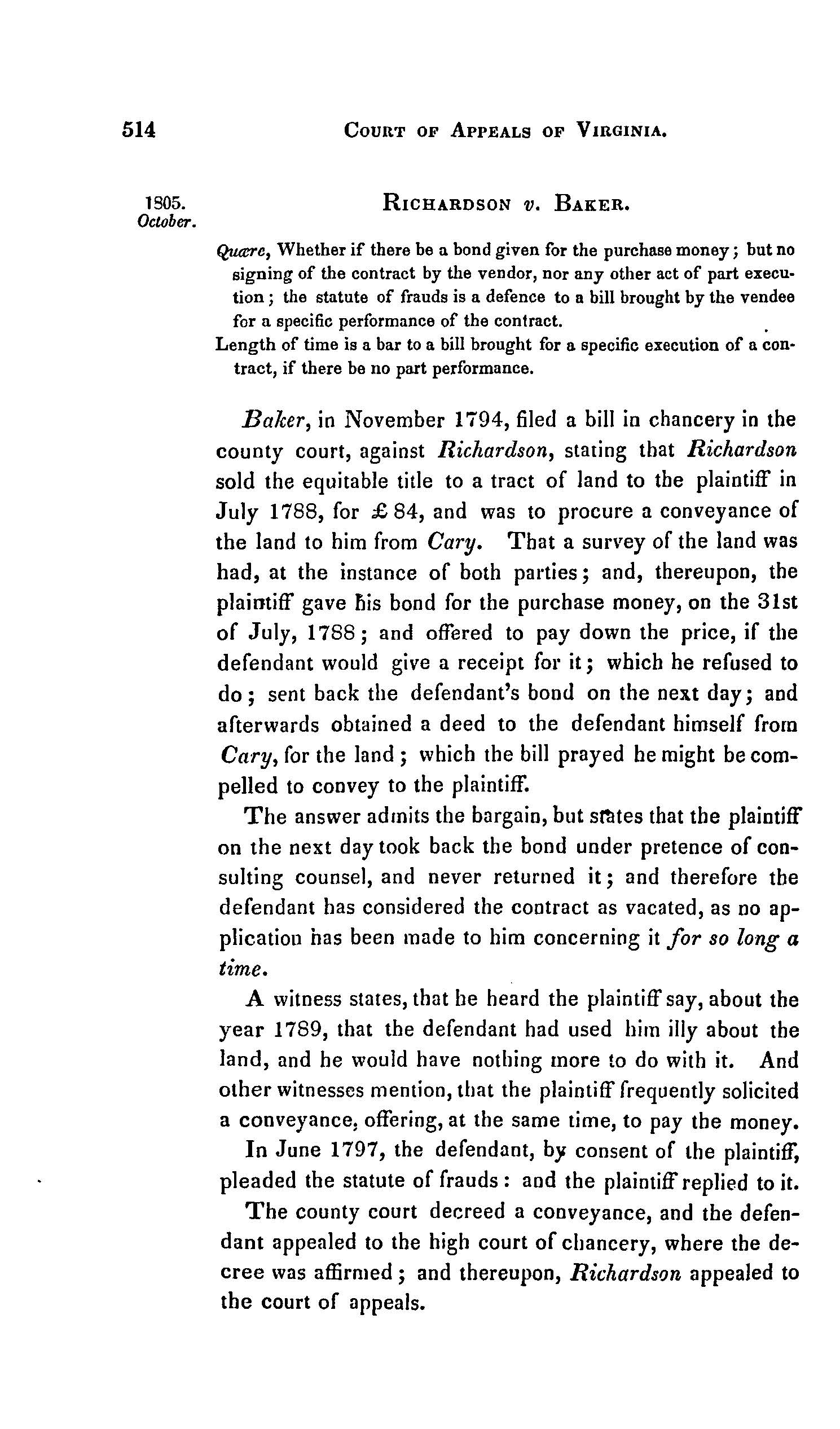Richardson v. Baker

In Richardson v. Baker, 9 Va. (5 Call) 514 (1805),[1] the Court determined whether giving a bond, but not signing a contract, could entitle a buyer to specific performance of a contract.
Background
In November 1794, Baker sued Richardson in Cary County Court for a tract of land he bought from Richardson for £84. Baker alleged that on July 31, 1788, after a survey was completed in the presence of both parties, Baker gave Richardson a bond to purchase the land. Baker also offered to put a down payment on the property if he could obtain a receipt for it, but Richardson refused the down payment. The next day Richardson returned Baker’s bond and purchased the deed for himself. Baker sued requesting conveyance of the property.
The Court's Decision
The County Court decreed a conveyance and Richardson appealed to the High Court of Chancery. Chancellor Wythe affirmed the lower court’s decree. The Court of Appeals reversed both decrees and dismissed the case with court costs.
See also
References
- ↑ Daniel Call, Reports of Cases Argued and Decided in the Court of Appeals in Virginia,(Richmond, VA: R. I. Smith, 1833), 5:514.